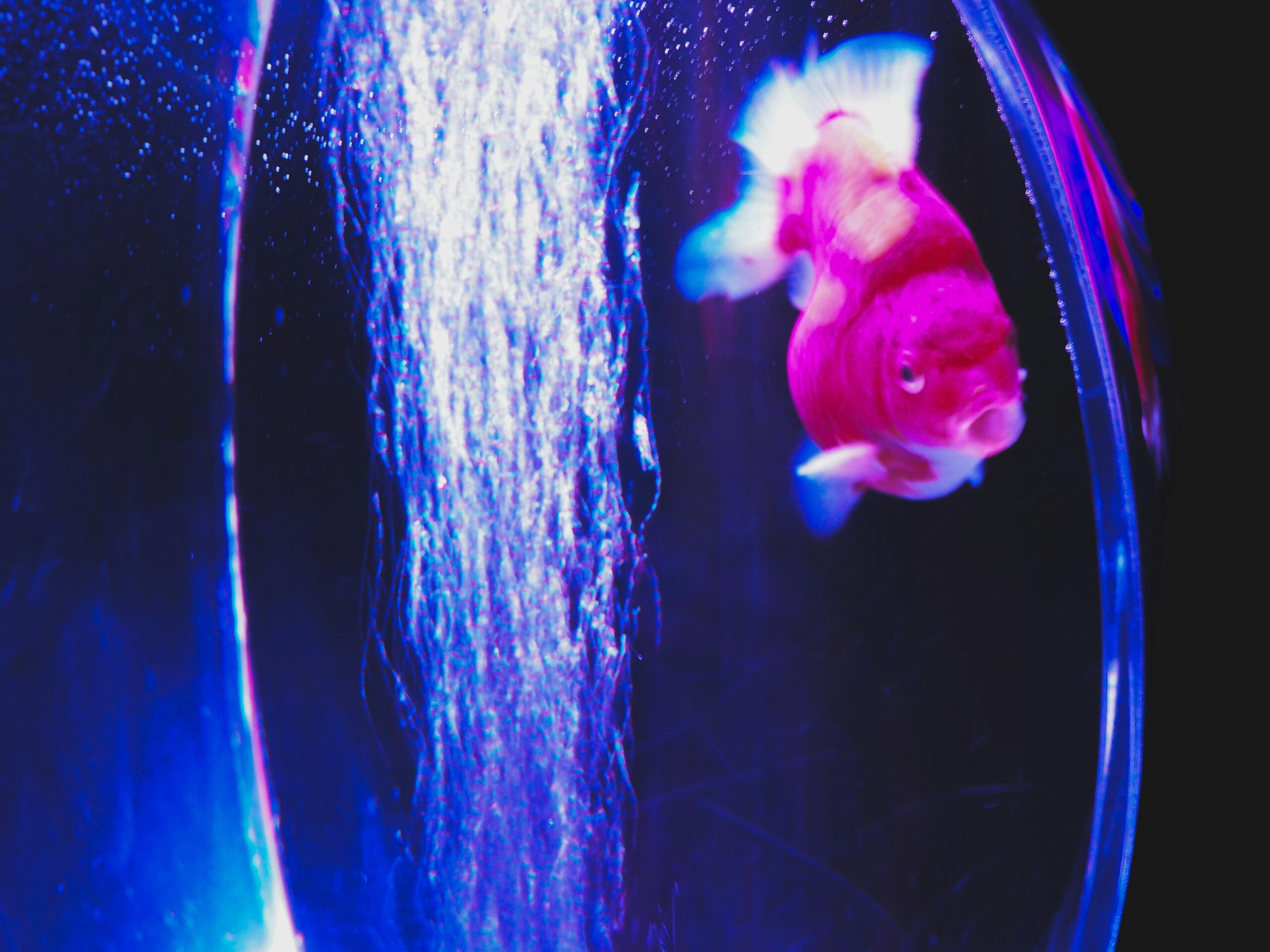Feeding goldfish is a crucial aspect of their care, as it directly affects their health and well-being. However, many fish owners are unaware of the proper feeding techniques and often make mistakes that can harm their finned friends. In this comprehensive guide, we will walk you through the step-by-step approach to feeding your goldfish, ensuring their optimal health and longevity. From understanding their dietary needs to portion control and feeding schedules, we will cover everything you need to know to become a goldfish feeding expert. So, let’s dive in and discover the secrets of keeping your goldfish happy and well-fed!
Understanding the Dietary Needs of Goldfish
Before we delve into the specifics of feeding your goldfish, it’s crucial to understand their dietary requirements. Goldfish are omnivorous, meaning they eat both plant and animal matter. Their diet should consist of a balanced mix of protein, carbohydrates, vitamins, and minerals to support their growth and overall health.
Protein Sources
Protein is essential for goldfish to build and repair their tissues. Good sources of protein include high-quality fish food pellets, freeze-dried or frozen brine shrimp, bloodworms, and daphnia. These protein-rich foods provide the necessary amino acids that promote healthy growth and vibrant coloration.
Carbohydrate Sources
Carbohydrates provide energy for goldfish and can be derived from various plant-based foods. Some excellent carbohydrate sources for goldfish include peas, spinach, lettuce, and other leafy greens. These vegetables also offer additional vitamins and fiber, aiding in digestion.
Vitamins and Minerals
Goldfish require a variety of vitamins and minerals to maintain their overall well-being. While commercial fish food pellets often contain essential vitamins, it’s beneficial to supplement their diet with fresh foods. Foods like carrots and oranges provide vitamin C, which boosts their immune system, while calcium-rich foods like cuttlebone or crushed eggshells aid in maintaining strong bones and teeth.
Now that we have a better understanding of their dietary needs, let’s move on to the proper feeding techniques to ensure their optimal health.
Portion Control: How Much to Feed Your Goldfish
Feeding your goldfish the right amount of food is crucial for their health and prevents overfeeding, which can lead to various health issues. Goldfish have small stomachs and are prone to overeating, so it’s important to practice portion control.
Determine the Appropriate Portion Size
The general rule of thumb is to feed your goldfish an amount of food that they can consume within 2-3 minutes. Start by sprinkling a small amount of food into the tank and observe how quickly they consume it. If there is still food left after a few minutes, you are likely overfeeding them. Adjust the portion size accordingly to avoid wasting food and polluting the water.
Feed Multiple Small Meals
Instead of feeding your goldfish one large meal, it’s preferable to divide their daily portion into multiple smaller meals throughout the day. This mimics their natural feeding behavior in the wild, where they graze on food intermittently. By spreading out their meals, you prevent overeating and promote better digestion.
Monitor Their Body Condition
Regularly monitoring your goldfish’s body condition is essential to ensure you’re feeding them the right amount. Ideally, their bellies should have a slightly rounded appearance, but not to the point of being bloated. If you notice any signs of bloating or their scales appearing stretched, it’s a sign of overfeeding. Adjust the portion size accordingly to maintain a healthy body condition.
By practicing portion control and monitoring your goldfish’s body condition, you can ensure they receive the appropriate amount of food for optimal health and prevent complications associated with overfeeding.
Establishing a Feeding Schedule for Your Goldfish
Establishing a regular feeding schedule is vital for maintaining the health and well-being of your goldfish. Consistency in feeding times helps regulate their digestion and prevents overeating. Here are some key points to consider when setting up a feeding schedule:
Feed Small Amounts Multiple Times a Day
Instead of feeding your goldfish one large meal, it’s recommended to feed them small amounts multiple times a day. Two to three feedings spaced out evenly throughout the day is ideal. This approach allows them to digest their food efficiently and prevents the accumulation of undigested matter in the tank.
Choose a Convenient Schedule
When deciding on a feeding schedule, consider your daily routine and choose times that are convenient for you. Goldfish are adaptable and can adjust to a consistent schedule. It’s important to stick to the chosen schedule to avoid confusing your fish and disrupting their feeding routine.
Observe and Adjust
While following a regular feeding schedule, it’s essential to observe your goldfish’s behavior and adjust the amount of food accordingly. If they consistently consume all the food within a minute or two, you may need to increase the portion size slightly. On the other hand, if there is leftover food after a few minutes, decrease the amount to avoid waste and water pollution.
Consider Fasting Days
Occasional fasting days can be beneficial for your goldfish’s digestive system. Once a week, skip one feeding to allow their digestive system to rest and eliminate any accumulated waste. Fasting days help prevent constipation and promote a healthy gut.
By establishing a feeding schedule that includes multiple small meals, choosing convenient times, observing your goldfish’s behavior, and incorporating occasional fasting days, you can ensure a consistent and healthy feeding routine for your goldfish.
Tips for Feeding Your Goldfish
Feeding your goldfish is not just about providing the right food and following a schedule. There are a few additional tips to keep in mind to ensure their optimal health and enjoyment during feeding time:
Use High-Quality Fish Food
Invest in high-quality fish food pellets specifically formulated for goldfish. These pellets are nutritionally balanced and provide essential nutrients for their well-being. Avoid low-quality or generic fish food as they may lack the necessary nutrients and can lead to nutritional deficiencies.
Soak Dry Food Before Feeding
If you’re feeding your goldfish dry pellets, it’s beneficial to soak them briefly in tank water before feeding. This softens the pellets, making them easier for your goldfish to consume and digest. Soaking also helps prevent the pellets from expanding in their stomach, reducing the risk of bloating.
Offer Variety in Their Diet
While commercial fish food pellets are a staple, it’s important to diversify your goldfish’s diet with occasional treats. Supplement their diet with small portions of freeze-dried or frozen foods like bloodworms, brine shrimp, or daphnia. This adds variety and provides additional nutrients that may be lacking in their regular diet.
Remove Uneaten Food
Goldfish are notorious for nibbling on food and spitting it out, which can lead to excess waste in the tank. To maintain water quality, promptly remove any uneaten food after feeding. Use a net or siphon to remove any food particles before they break down and pollute the water.
Monitor Water Quality
Regularly test and maintain proper water parameters in your goldfish tank. Poor water quality can affect their appetite and overall health. Ensure the tank is properly filtered, perform regular water changes, and monitor ammonia, nitrite, and nitrate levels to create a clean and healthy environment for your goldfish.
By following these tips, you can enhance the feeding experience for your goldfish and contribute to their overall well-being.
Common Mistakes to Avoid When Feeding Goldfish
Feeding goldfish may seem straightforward, but there are some common mistakes that fish owners often make. By avoiding these mistakes, you can ensure the health and longevity of your goldfish:
Overfeeding
Overfeeding is one of the most prevalent mistakes made by goldfish owners. It’s important to remember that goldfish have small stomachs and can easily become bloated if fed excessive amounts. Overfeeding leads to poor water quality, digestive issues, and can even shorten their lifespan. Stick to the recommended portion sizes and avoid the temptation to overfeed.
Feeding Incompatible Foods
Not all foods are suitable for goldfish. Avoid feeding them foods that are high in fats, spices, or seasonings meant for human consumption. These can cause digestive problems and even be toxic to your goldfish. Stick to foods specifically formulated for goldfish or those that are known to be safe and nutritious for them.
Ignoring Fresh Foods
While commercial fish food pellets are a staple, it’s important to supplement your goldfish’s diet with fresh foods. Fresh vegetables like peas, spinach, and lettuce provide essential vitamins and fiber. Neglecting fresh foods can result in nutritional deficiencies. Include a variety of fresh foods in their diet to promote a balanced and healthy nutrition intake.
Feeding in Dirty Water
Feeding your goldfish in dirty water can lead to various health issues. Food particles left in the tank can break down and contribute to poor water quality. Always ensure the tank is clean before feeding and promptly remove any uneaten food to maintain a clean and healthy environment for your goldfish.
Not Adjusting for Seasonal Changes
Goldfish have different feeding requirements depending on the season. In colder months, their metabolism slows down, and they require less food. Adjust their portion sizes accordingly to prevent overfeeding and potential health issues. Similarly, during warmer months, they may require slightly larger portions to support their increased activity levels.
By avoiding these common mistakes, you can provide the best care for your goldfish and enjoy their companionship for years to come.
Feeding your goldfish properly is essential for their overall health and well-being. By understanding their dietary needs, practicing portion control, establishing a feeding schedule, and following helpful tips, you can ensure that your goldfish receive the right nutrition and enjoy their feeding time. Avoiding common mistakes such as overfeeding, feeding incompatible foods, and neglecting fresh foods will contribute to their long-term health and happiness. Remember to monitor their body condition, adjust their diet as needed, and maintain a clean tank environment. By implementing these guidelines, you can become a goldfish feeding expert and provide the best care for your finned friends.

